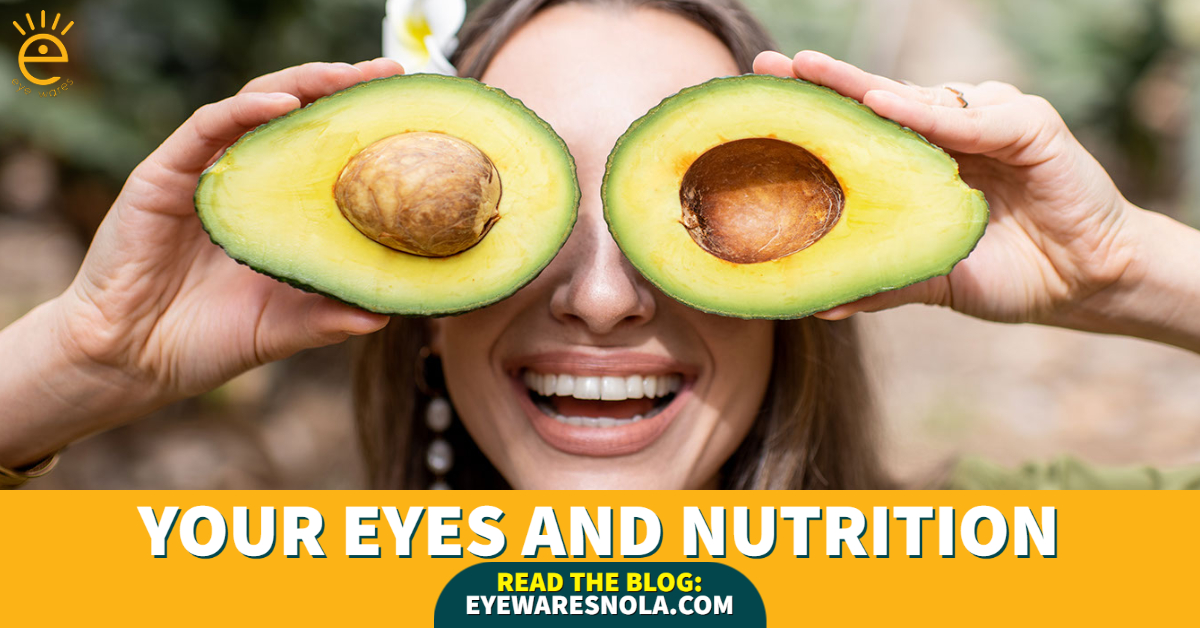Nutrition is one of the most important aspects of maintaining your overall well-being, including eye health. What you eat can have a significant impact on your vision. Certain nutrients are essential for vision health, including vitamin A, C, lutein, and zeaxanthin. By making simple changes to your diet, you may be able to improve your eyesight and reduce your risk of developing vision problems later in life.
If you’re interested in learning more about nutrition and its impact on vision health, keep reading!
Talk to Your Optometrist About Nutrition and Its Effect on the Eyes
Poor nutrition is a common cause of vision problems. Certain nutrients are essential for eye care, and when they are lacking, it can lead to a deterioration of vision. Optometrists are well-equipped to help patients identify and address nutritional deficiencies. In addition, they can offer specific dietary recommendations based on each individual’s needs, such as:
Foods To Add to Your Diet for Your Ocular Health
The food you eat directly impacts your overall health, including your vision. While many nutritious foods are essential for ocular health, there are a few that stand out as being especially beneficial, including:
- Broccoli: Broccoli is a good source of lutein and zeaxanthin, two nutrients that have been shown to help protect against age-related macular degeneration. This green leafy vegetable is also rich in fiber, vitamins (A, B, and E), and minerals (iron, sodium, potassium, etc.), all of which are important for eye health.
- Saffron: Saffron is a nutrient-rich spice that has also been shown to slow down the progression of macular degeneration. It is also a rich source of antioxidants, which can protect the eye’s delicate tissues from damage caused by free radicals. Additionally, saffron has anti-inflammatory properties that may help to reduce swelling and redness in the eyes.
- Walnuts: Walnuts are a great source of omega-3 fatty acids, essential in preventing dry eyes and maintaining the retina’s health. They also contain high levels of vitamin E, which can help reduce the risk of cataracts.
- Raw red peppers: Red peppers are an excellent source of vitamin C if eaten raw, as heat can destroy this critical nutrient. Vitamin C is a powerful antioxidant that is good for the blood vessels in the eyes and can also help to reduce the risk of cataracts.
Things To Avoid and Why
While there are many healthy foods to keep your eyes healthy, there are also some that should be avoided that can put your vision at risk. These include:
- Alcohol: Alcohol consumption has long term-effects on the eyes. Excessive drinking can lead to optic nerve damage and vision problems such as difficulty focusing, rapid eye movement, blurry vision, and even blindness. Studies have also shown that alcohol increases the risk of dry eye syndrome in women.
- Smoking: Smoking is one of the leading causes of preventable blindness. It increases the risk of developing cataracts, macular degeneration, and other severe eye conditions.
- Sugar: A high sugar intake has been linked to several eye problems, including diabetic retinopathy and AMD.
- Processed food: Foods such as hot dogs, bacon, deli meat, canned foods, etc., are often high in sodium and other unhealthy additives that can lead to vision problems.
Overall Health Affects Eyesight
Maintaining good overall health is essential for keeping your eyes healthy. Conditions such as diabetes, high blood pressure, and high cholesterol can all lead to vision problems. This is because certain medications used to treat these conditions can cause side effects that affect vision. To maintain good vision, controlling these underlying health conditions and taking measures to protect the eyes from damage, such as wearing sunglasses and avoiding bright sunlight. This is why it is essential to have regular check-ups with your doctor and optometrist to ensure that your vision is not affected by these or other health conditions.
Importance of Annual Eye Exams
Many people take their vision for granted, assuming their eyesight will always be perfect. Others may only take a trip to a local optometrist when they experience vision changes. An annual eye exam is essential to your overall health. Here are a few reasons why:
- Early detection of eye disease: Many eye diseases have no symptoms in the early stages. An annual eye exam can help detect common eye problems, such as glaucoma, cataracts, and macular degeneration, early when they’re most treatable.
- Preserve your vision: Early detection and treatment of eye disease can help maintain good vision and eye health.
- Detect other health problems: Your eyes can be an early warning sign for other severe health conditions, such as diabetes and high blood pressure. An annual eye exam can help catch these diseases early.
- Monitor your vision: Regular eye exams can help your eye doctor track changes in your vision to ensure that you are using the correct prescription for your glasses or contact lenses and prescribe corrective lenses if needed.
- Provides an opportunity to ask questions: Annual eye exams are an excellent opportunity to ask your optometrist any questions about your vision to keep you informed and up-to-date.
Who Should Have an Annual Eye Exam?
Annual eye exams are recommended for everyone, even if you don’t have any vision problems. Children should have their first eye exam around 6 months old.
You may need to see your eye doctor more often if you have a family history of vision problems, are over 50, have diabetes, or another health condition that can affect your eyes. In addition, people who work in occupations like construction, driving, or healthcare that require intense use of their eyesight may also need more frequent eye exams.
Regardless of age, individuals that spend a lot of time on electronic devices for work, school, or recreation should not skip their annual eye exam. Long-term exposure to blue light subjects them to Digital Eye Strain and Dry Eye Syndrome.
See Your Local Optometrist
What we put into our bodies significantly impacts our overall well-being. A healthy diet will help keep your eyes functioning at their best and possibly prevent age-related vision problems. That’s why ensuring we have a solid understanding of nutrition basics is vital.
Regular check-ups with an optometrist are also vital to maintaining good vision. Dr. Lauren Agnew, OD of Eye Wares is dedicated to helping her patients achieve and maintain optimal eye health. She is a Doctor of Optometry with a growing independent optical business in three locations: Uptown New Orleans, Mandeville, and Metairie.
If you’re due for an eye exam, schedule an appointment with Eye Wares today. Insurance is accepted. Saturday appointments available.


